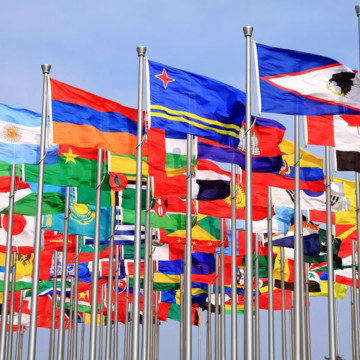

Year 12 Global Politics Units 3 and 4 – Bellum Bellum Blended Learning Hub
Overview
In Global Politics students study contemporary global events.
In Unit 3 you will learn about the key global actors in the international system including states, the United Nations, transnational corporations, and non-state actors like Islamic State. You will also examine the way the United States uses its power and foreign policy instruments in the Asia Pacific region to achieve its interests.
In Unit 4, you will study some of the key areas of disagreement in the international system including standards of human rights, and how to respond to people movement. You will also examine major crises the international community must confront, including armed conflict, and terrorism.
Who is it for?
This subject is for students who are interested in contemporary world events from the last 10 years. A good level of reading and written expression is needed to analyse in detail the political science concepts and ethical debates that are raised in this subject.
The topics covered in Units 3 and 4 provide a good foundation for students intending to study international relations, law, journalism, arts, teaching, diplomacy, or international aid work at university.
What do you do?
You will attend face to face classes every three weeks and a weekly online lesson. You will complete a variety of weekly learning tasks, including written responses to set questions and activities on required reading, online quizzes, reports, research assignments, participation in online discussion forums, online lessons, multimedia presentations and essay writing. You will sit four SACs across the course of the year’s study, and one written examination at the end of the year.
What skills do you need?
You will need a good level of written expression for this subject, and commit to completion of significant reading and monitoring of news on current events. Access to a reliable high bandwidth of internet is essential as the course is online and much information is delivered via screencast and other video.
You will be expected to stay abreast of contemporary world news and current events, and make links between these and the political science you are learning in lessons. You will also need to form opinions on contemporary events and actors, and justify your ideas using specific contemporary evidence, from the last 10 years.
What skills do you develop?
In Global Politics Units 3 and 4, you will develop a range of skills including:
- critical thinking – learn to consider multiple perspectives, and evaluate the validity and effectiveness of those positions
- interpretion and analysis – learn how to use evidence from authoritative sources to support or disprove ideas
- written communication– learn how to form a punchy but considered argument, and justify it using contemporary evidence
- structural analysis – apply knowledge of international law and systems to analyse the impact of international event
- problem solving – learn the key causes of contemporary international crises, and how actors can respond effectively.
Requirements
Units 1 and 2 of Global Politics are not a prerequisite for Units 3 and 4. You must have access to the internet in order to access this course.
Things to think about
Students need to come to the subject with a broad understanding of world news and events. A strong grasp of the world’s geopolitical structure and cultural demographics are also highly recommended. Key terminology and subject-specific language is developed during Units 3 and 4, however a familiarity with the language of the global political arena will certainly help students hit the ground running.
Past students have remarked in their feedback that they really loved the contemporary nature of the topics discussed and learned a lot about how the political world is connected, but that there is a high demand on students to keep up to date with the required reading and additional resources links provided each week.
A realistic weekly time management plan and regular teacher contact is paramount for students to achieve good results in this subject
Things you can do now
Start building a daily diet of global news and current affairs into your life. Focus on the key areas that the Global Politics Study Design covers – for example, a current armed conflict. Familiarity with the language of international relations will help you hit the ground running. Look for authoritative sources, and screen out politicised biased coverage, conspiracy theories, and ‘fake news’. See the ‘Things to have a look at’ section below for recommendations on where to start. Find one or two news sources you like, and look at them regularly.
The Unit 3/4 Global Politics Study Design will give you more information on the area of study, SAC and examination conditions. The Study Design is available on the VCAA website.
Things to have a look at
Al Jazeera News
Al Jazeera News: news and analysis from the Middle East and worldwide. A great place for a non-US perspective on world events
Brookings Institution
Brookings Institution: highly respected US think tank offering in-depth reports on topics from Islamic State ideology, to China’s climate priorities.